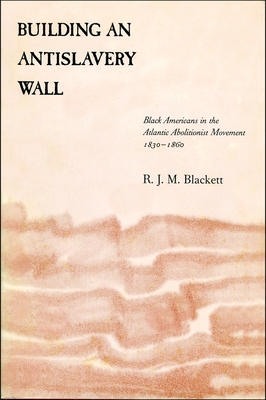In Building an Antislavery Wall, R. J. M. Blackett examines the efforts of black Americans in England to advance the cause of their own freedom. Speaking to enthusiastic working-class crowds in the cities and lobbying in the salons of the wealthy and aristocratic, black Americans used England as a forum to tell the world of their cruel plight in the United States, to expose what they saw as an oppressive slave society masquerading as the seat of democracy and freedom. It was their goal to create a moral cordon around the United States so that, in the words of Frederick Douglass, "wherever a slaveholder went, he might hear nothing but denunciation of slavery, that he might be looked upon as a man-stealing, cradle-robbing, woman-stripping monster, and that he might see reproof and detestation on every hand." The American blacks who visited England between 1830 and 1860 came there for various specific reasons--some to raise funds for projects at home, some to receive the education that they had been denied by American colleges, many for refuge from slave-catchers. But every black saw himself, at least to some extent, as an emissary from his enslaved brethren in America, and he was treated as such by British society. Some--Frederick Douglass and Martin R. Delany, for example--were already famous; others, like Henry "Box" Brown and James Watkins, would gain fame through their lecturing while in England. Some of the blacks who came to England were ministers; others were doctors, journalists, and authors of slave narratives. Clearly gifted and articulate individuals, these black Americans stood as living proof of slavery's unfairness, flesh-and-blood refutations of America's boasted freedom. Tracing the impact of the black Americans, Blackett concludes that they were very effective spokesmen who significantly advanced the cause of the Atlantic abolitionist movement. British support had monetary as well as symbolic value, and the popularity of the blacks as lecturers gave them a special edge in both fund-raising and proselytizing. At the same time, while organized white abolitionist societies expended much of their energy on sectarian disputes, the blacks sought to bridge these differences in the hope of marshaling the full weight of British opinion in their favor. The blacks played an especially important role, Blackett finds, in discrediting the American Colonization Society--their adamant opposition made it difficult for colonizationists to convince the British











